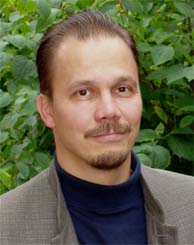Information Centre for Register Research
Helena Laaksonen 1.3.2004
The Finnish Information Centre for Register Research (ReTki) was set up in August 2003, and is part of the Finnish National Research and Development Centre for Welfare and Health (STAKES). In the first stage, the centre focuses on facilitating register-based research in Finland, especially in social and health sciences. It also offers advice on how to plan and carry out research based on register information and on statistic reports.
The main tasks of the centre include maintaining a network of register authorities and research institutes, providing training on methodology, offering advice on register access applications and research design, and assisting researchers in combining information from different registers.

Even though the centre is not yet fully established, and has not advertised its services to any large extent, some persons have already been in contact to get help.
- I have given advice on the phone, answered e-mail enquiries and given face-to-face advice, says Jari Haukka, the manager of ReTki.
Haukka encourages researchers to contact the centre as early as possible when they start planning their research.
- Often questions that may seem trivial at first sight to the researcher will prove to be really tricky ones. For example, researchers may not be familiar with relevant legislation. It is worthwhile to find out what kind of access applications are likely to be accepted and which may be rejected. Getting permits to access register information usually takes time, Haukka points out.
Web portal and researcher network
Services offered by ReTki will be available on its web site, scheduled to be be published at a later stage. Haukka says the web portal will contain information on various aspects of register research. For example, it will contain a list of different registers, practical advice on access applications, an index of register researchers, and information of relevant events and training courses. Registers included in the register list will be documented in a similar manner as datasets in FSD collections.
Publications, abstracts and other material pertaining to relevant events and training courses will be added to the web site.
- However, the most important product provided by the centre will not appear on the web site, Haukka remarks. He refers to a network of Finnish and Scandinavian register researchers that he hopes to establish.
Next year ReTki will organise a workshop for Nordic register researchers. Researchers from different countries will present their studies and discuss practices and policies in their respective countries. Another aim is to find out whether it would be possible to combine register data from Finland, Sweden, Norway and Denmark. The workshop will also take a look on how EU legislation affects register research and how EU directives should be applied.
Current plans
The centre is presently charting all possible register information sources and training needs in different sectors. Meetings for different research fields are being planned, in co-operation with graduate schools, universities and research institutes. The objective of the meetings is to get more information on various registers and to disseminate this information.
At the moment, ReTki seems to concentrate more on health sciences than social sciences. This is partly due to Jari Haukka's own background in genetic epidemiology and public health. Haukka estimates that register research is more common in health sciences than in social sciences. Moreover, data confidentiality obligations are often stricter for social registers.
ReTki does not aim to exclude social scientists, however. Jari Haukka would like to be in contact with social science associations and research groups.
- If someone feels the need to arrange a thematic conference or a training event, we are willing to co-operate.
Background of the centre
The Academy of Finland funds the centre until the end of 2005. In addition to STAKES, the National Public Health Institute, the Finnish Social Insurance Institution and the Finnish Institute of Occupational Health have been involved in setting it up.
Haukka sees the National Centre for Register-based Research (NCRR) in Denmark as a model for ReTki. NCCR is affiliated to the University of Aarhus, and was established in 2000. However, NCRR has larger resources with about a dozen employees than ReTki with its two-person team. NCRR is thus able to emphasize its own research more. The policy of the Danish government is to make Denmark a world leader in register research.
Further goals for the Finnish centre include improving the quality of register research and increasing the overall use of registers. The operations of the centre will be evaluated at the end of 2005, when decisions about further funding and the future of the centre will be made. However, it will probably take longer for the centre to make its full impact felt.
Top of page | Privacy Policy
|